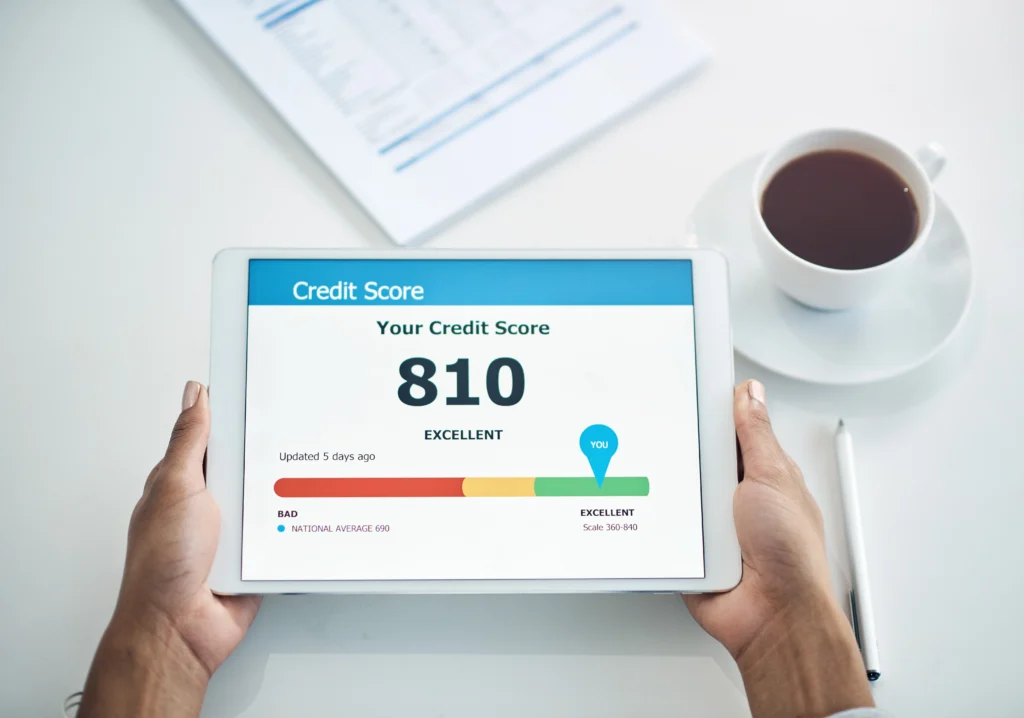Things to Consider Before Refinancing Your Home Loan
Refinancing your home loan can be a great way of using your debt to invest in something new or build savings. It’s one way you can take control of your finances and grow wealth when you need more than a personal loan can offer. But there are a few things to consider when refinancing your home loan. We’ll take you through what’s involved and help you make an informed decision.
Overview
- What is refinancing?
- Why refinance your home loan?
- What are the costs of refinancing?
- When is the best time to refinance?
- Does your credit score affect refinancing?
- Be wary of honeymoon/introductory rates
- Reasons not to refinance
- Before you decide to switch
What is refinancing?
At its simplest, refinancing is when you move your home loan to a different lender or a different product with the same lender. An external refinance is when you move your mortgage to a different lender, while an internal refinance is when you move your mortgage with your current lender.
Many people think of a mortgage as something you’re locked into for the entirety of the length of the loan, but shopping around for the best deal can help you discover better terms and save in the long run.
Why refinance your home loan?
There are many reasons why someone would want to refinance their home loan. It can give you access to lower interest rates, reduce monthly repayments, or help you pay off the loan sooner. But with so many possibilities, it’s important to have a goal in mind before you start making inquiries.
Lower interest rates/repayments
Lowering your monthly repayments might seem like the best option, but keep in mind that this could extend your loan term, ultimately costing you more in interest over time. On the other hand, securing a lower interest rate could keep your repayments close to their current amount while helping you pay off your loan sooner.
Access equity of the home
Another common reason people refinance their mortgage is to access the equity in your home. This can help you free up some cash for a large purchase, some major renovations, or even to invest in another property.
Debt consolidation
If you’re facing significant debt outside your home loan, such as from credit cards or car loans, you could consider consolidating these debts into your home loan. Not only does this streamline your debts into one simple payment, it could help you save as home loans generally have a lower interest rate than credit cards or personal loans.
But remember, because home loans generally have a longer term than other debts, you could still end up paying more in interest over the long run. You’ll need to do some calculations and consider the best approach for you before consolidating your debt.
Loan term/loan features
Looking at other factors besides the interest rate can help you make a decision. Consider your financial goals and whether extending or shortening your home loan term would be the best approach. Just because a loan might have a lower interest rate doesn’t mean it’s the best value for you. Make sure to check other loan features, like redraw facilities or an offset account, to help you find the best deal.
What are the costs of refinancing?
There are plenty of costs that come along with refinancing your home loan, and if you’re not careful they can leave you wondering whether the whole process was worthwhile in the end.
The best way to avoid any nasty surprises is to double check the terms and conditions of both your current home loan and any loan you’re looking to refinance. Add up what the change costs will be, and compare that to how much you’ll save with a lower interest rate or better loan terms. You might find the refinance will pay for itself in less than a year, or you could see costs ballooning to the point that a refinance no longer makes sense. Key things to look out for include:
- Mortgage application fees
- Discharge fees to terminate mortgage
- Break costs
- Settlement fees
- Property valuation fees
When is the best time to refinance?
It’s never too early or too late to refinance your home loan, as long as there’s a clear benefit on offer. That said, there are a few things you want to look out for to increase your chances of getting the best value possible.
Keep an eye on what interest rates are doing in the home loan market, and research what experts are predicting the trends to be in the future. If interest rates are likely to rise, it might be a good time to refinance with a fixed interest rate. If they’re looking to drop by at least 1%, you could consider refinancing to take advantage of the lower rates.
Does your credit score affect refinancing?
Refinancing your home loan counts as a form of credit inquiry, which shows up on your credit report. Too many inquiries can temporarily lower your score and make lenders wary of approving your application.
Like all forms of lending, your credit score also affects the interest rate and terms you’re likely to get. If your credit has dropped since taking out your home loan, consider building up your credit before applying for refinancing. On the flipside, if your credit has improved over time, you might be able to secure better rates and terms if you refinance with your current credit score.
Be wary of honeymoon/introductory rates
Some lenders offer introductory rates, also known as honeymoon rates, to entice home owners to refinance with them. But after a fixed term, these introductory rates jump up, often significantly, where they remain for the rest of your loan term. It’s important to do your calculations and work out whether the introductory rate will see you save more in the long run than a slightly higher rate that doesn’t fluctuate as much.
Reasons not to refinance
Between lower interest rates and accessing your home’s equity, there are plenty of reasons to refinance your home loan. But like all financial products, you need to be careful and do your research to make sure you won’t end up worse off than you started.
Some reasons not to refinance include:
- Your timeframe: Are you thinking of moving or selling your home soon? You might not have enough time to accrue significant interest savings benefits to make a refinance worthwhile
- Your credit score: Facing some bad credit? It might be better to build up some positive credit history before trying to refinance your home loan.
- Low equity: Lenders might be wary of refinancing if you have less than 20% equity in your home (or, in other words, you’re borrowing 80% or more than your home’s current value).
- High refinancing costs: You don’t want to end up in a situation where the costs of refinancing your home loan outweigh the potential savings.
Before you decide to switch
So you’ve decided you want to refinance, and you have a goal in mind for yourself. But before you start shopping around, it’s a good idea to ask your current lender for a better deal. Most lenders will want to keep your business, so they might offer you a lower interest rate or better loan terms, saving you the hassle and cost of finding a new lender. However, you should still compare what they’re offering with other loans you’re considering to make sure you get the best deal.
Ultimately, the decision to refinance comes down to what’s best for your financial situation, and whether the benefits outweigh the costs.
Need something to tide you over while you apply for refinancing?
If you’re thinking about refinancing to do some work on your home or make a big purchase, a personal loan from Swoosh can help you get started sooner. Contact us for more information, or apply online today.










